
Opinions
18:14, 18-Nov-2017
Chinese, South African TV channels collaborate to address poverty
By CGTN’s The Point
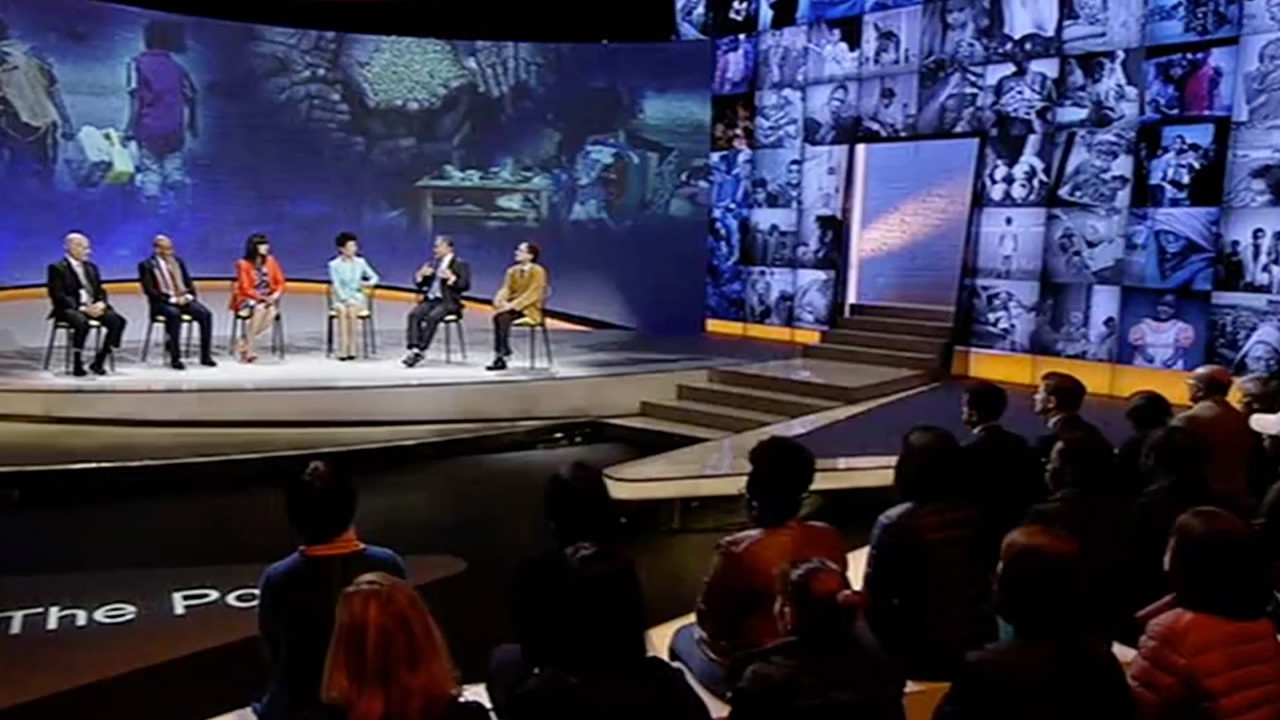
On Poverty, a special program co-produced by China Global Television Network (CGTN) and South African Broadcasting Corporation (SABC), explored and discussed poverty on an intercontinental level.
Hosts Liu Xin from CGTN and Leanne Manas from SABC, four distinguished panelists, and five poignant speakers who each shared a personal story joined forces to have an important conversation about what poverty means today, how it affects the lives of individuals and communities, and what steps can be taken to combat these complex challenges.
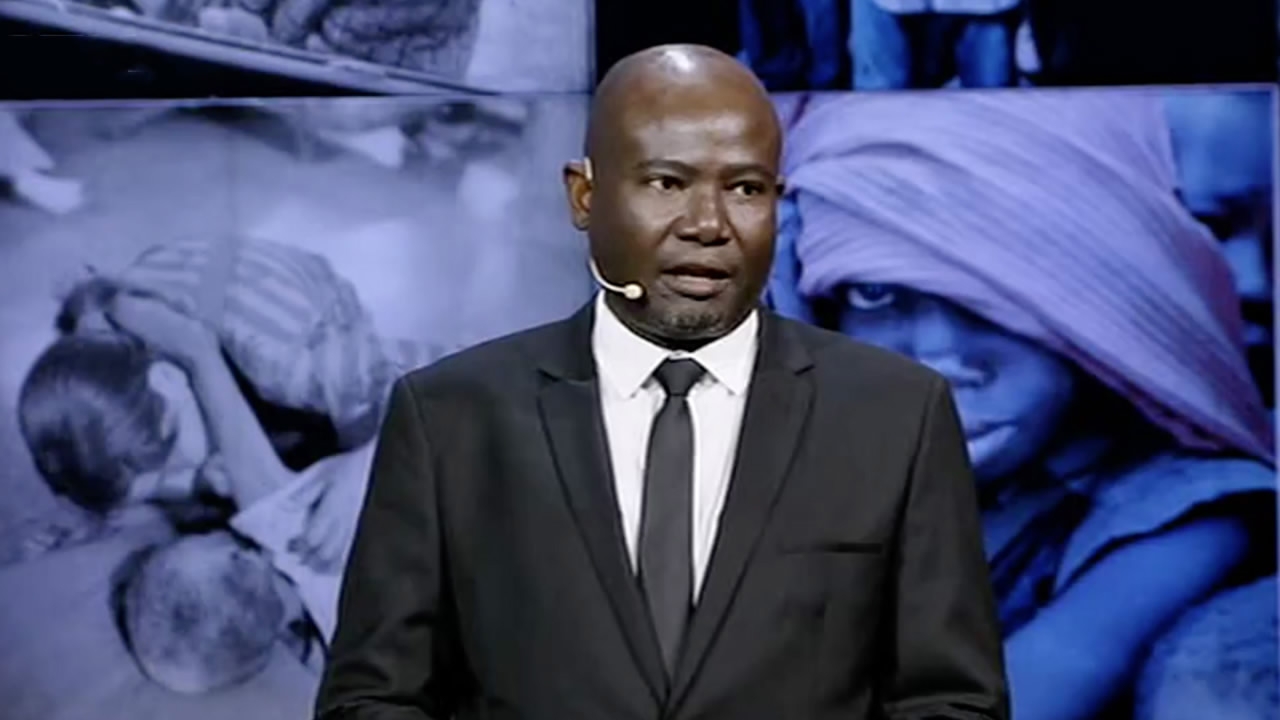
“I know poverty. I did not read about it in books or watch it on TV. I experienced it,” said Mainganya Raymond Neluvhalani, a South African NGO founder and social work consultant who experienced extreme poverty and is now helping others. He recalled his unforgettable suffering when his whole family had to stand outside because the heavy rain poured into the house.
He also shared a story about a boy and girl who were harmed by desperately poor people who attacked them, removing some of their body parts to sell on the black market. The boy died from his wounds while the girl survived but with scars across her face. “Her poverty is continuing with her life. There are many others. Poverty is real,” Neluvhalani concluded.
According to the UN, 767 million people live below the international poverty line of 1.90 US dollars a day, and the overwhelming majority of these people live in two regions: Southern Asia and Sub-Saharan Africa.
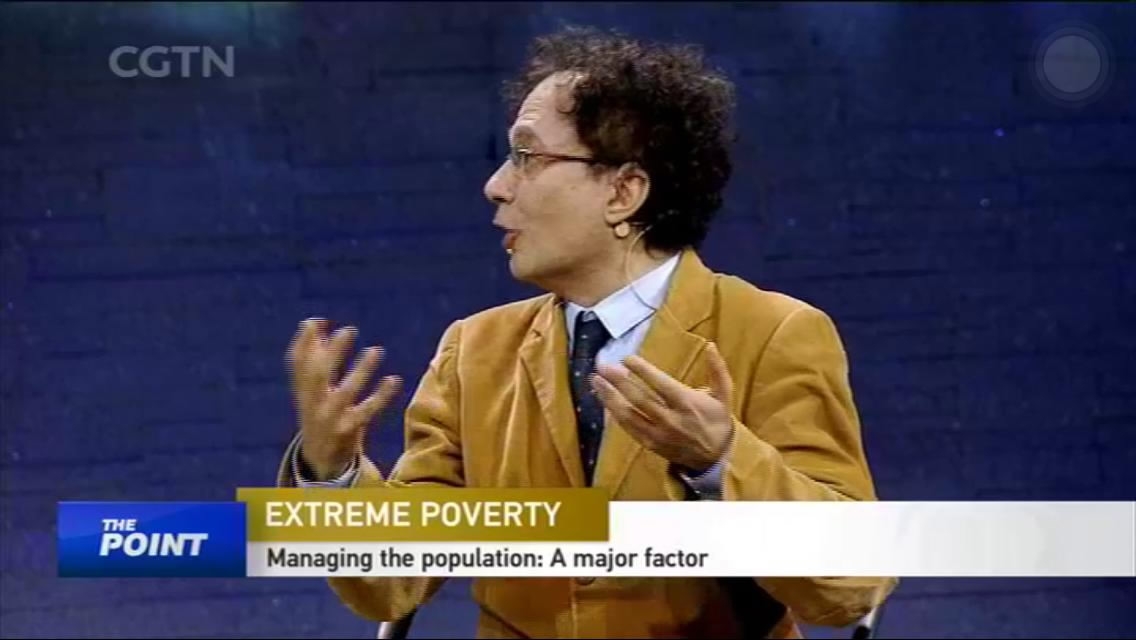
Michele Geraci, Head of the China Program for the Global Policy Institute. /CGTN Photo
Michele Geraci, Head of the China Program for the Global Policy Institute. /CGTN Photo
Michele Geraci, Head of the China Program for the Global Policy Institute added, “I think one of the reasons why we still have poverty in those areas and not in China is, other than the strong government, the management of the population.”
“China has successfully managed its population numbers and has grown the GDP not only in the country but also per capita.” Geraci mentioned China’s former one-child policy, adding that, “even now that the one-child policy has been lifted in China, we do not see people still running around and having more than 1.3 children.” He suggested that governments should pay subsidies to help keep families small. “Keeping children to 1.5 per family would lower the number of poor children,” he explained.
Thando Nyawose, Economic Counselor for the South African Embassy in China emphasized education’s role in poverty reduction in South Africa. “Poverty thrives when people are less educated. We have invested lots of money in education. It takes about 20% of our national budget,” Nyawose said, adding that, “the challenge is to make that money well spent.”
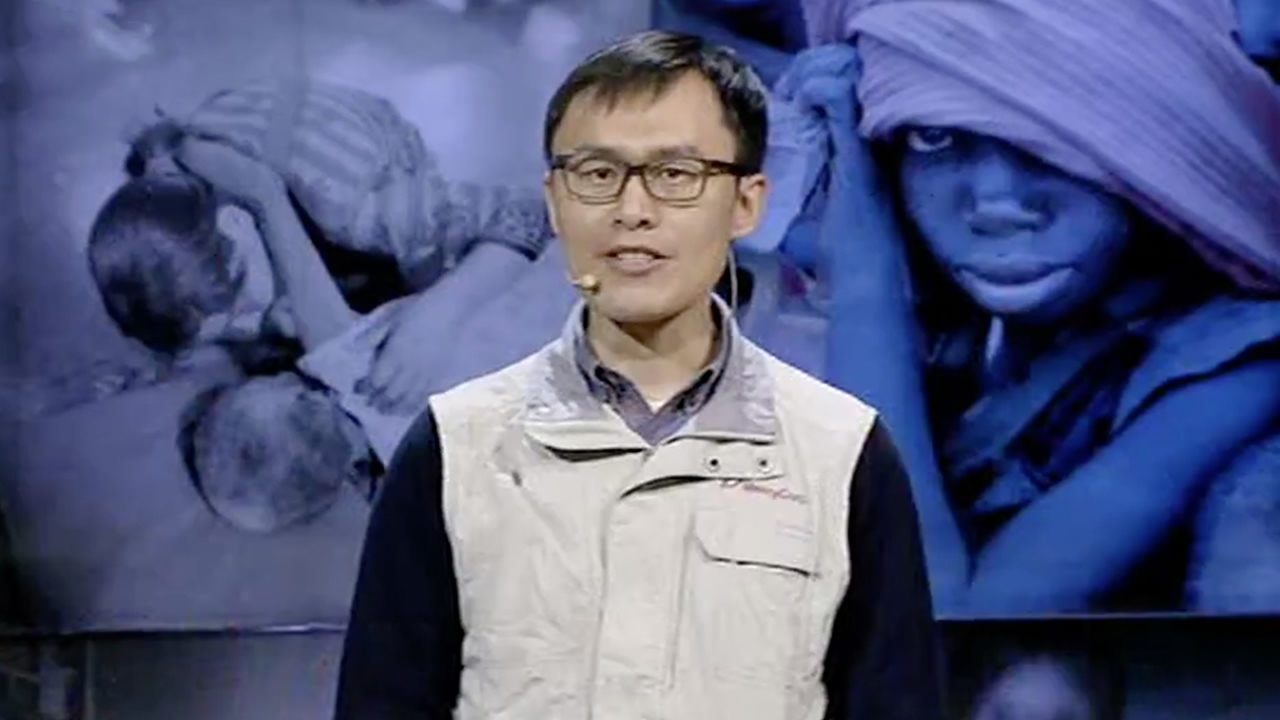
The second speaker was Peng Bin, an NGO practitioner who has been working with local communities in China, Southeast Asia, and Africa for more than 18 years. He talked about an embarrassing moment when he was working in Uganda, and a woman living in a poor village called him out when he took a photo of her without her permission.
The experience made him think twice about what it means to preserve the dignity of poor people and the need to find local solutions to suit circumstances. “I was very much reminded of how important it was for us not to make any assumptions in any situations, no matter how much we think we know,” Peng concluded.
SABC’s Leanne Manas mentioned a Mother Teresa quote: “the poverty of being unwanted, unloved, and uncared for is the greatest poverty.” So what is the best way to make the world aware of these excruciating circumstances while preserving people’s dignity?
“I worked in UNICEF for a number of years, and I would emphasize one thing,” said Bill Bikales, Senior Development Economist. He pointed out that “children have the right to dignity, and that has to be respected also. People should be very careful about taking pictures of children.”
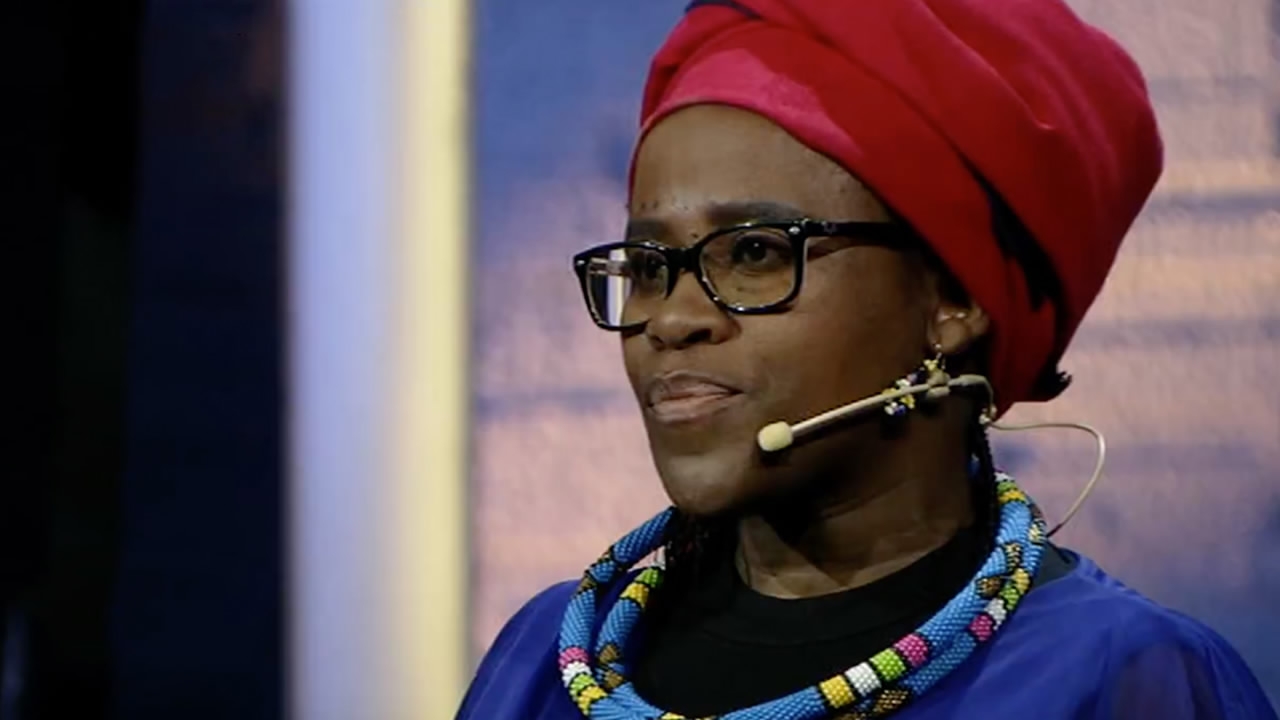
The third speaker was Elle Mahlulo, who is a caring “mother” who founded a local safe house and voluntarily supports 26 children in South Africa. “I grew up in a very poor background raised by a single mother who was an alcoholic,” Mahlulo said. Mahlulo started her business to help children who shared childhoods similar to her own.
One of the children she adopted was named Beauty. Beauty did not smile for many months, but Ella kept trying to bring some joy to the child’s life. When Ella’s boyfriend at the time proposed, she put him to the test and introduced him to Beauty. After meeting Ella’s boyfriend, Beauty finally smiled, so Ella’s answer to the proposal was a “yes.”
“Our main thing is to bring back the dignity from any child and bring up the positive attitudes,” Mahlulo added.
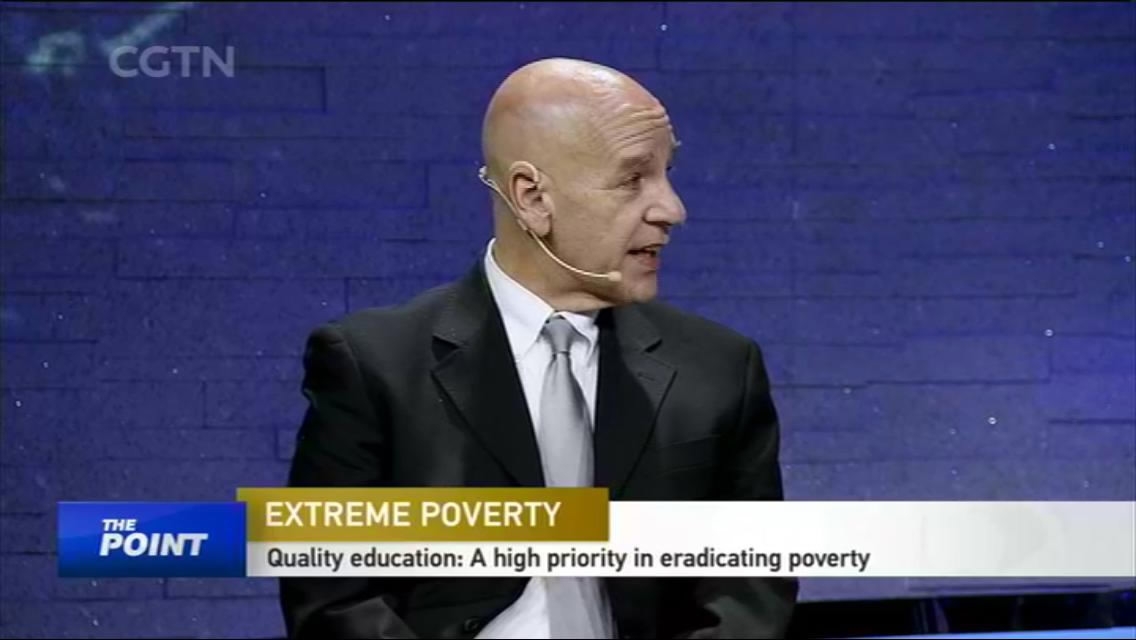
Bill Bikales, Senior Development Economist. /CGTN Photo
Bill Bikales, Senior Development Economist. /CGTN Photo
Extreme poverty disproportionately affects children. 19.5% of the world’s children live in extreme poverty compared to 9.2% of adults. Around the world, children make up nearly half of the people living on less than the international poverty line, which is 1.90 US dollars a day.
In terms of social grants, Bikales thought they are very important. But he also argued that a society can’t alleviate poverty just by depending on social grants alone. “Inclusive growth, education, and heath services - those are the only ways that you can eliminate poverty sustainably,” Bikales concluded.
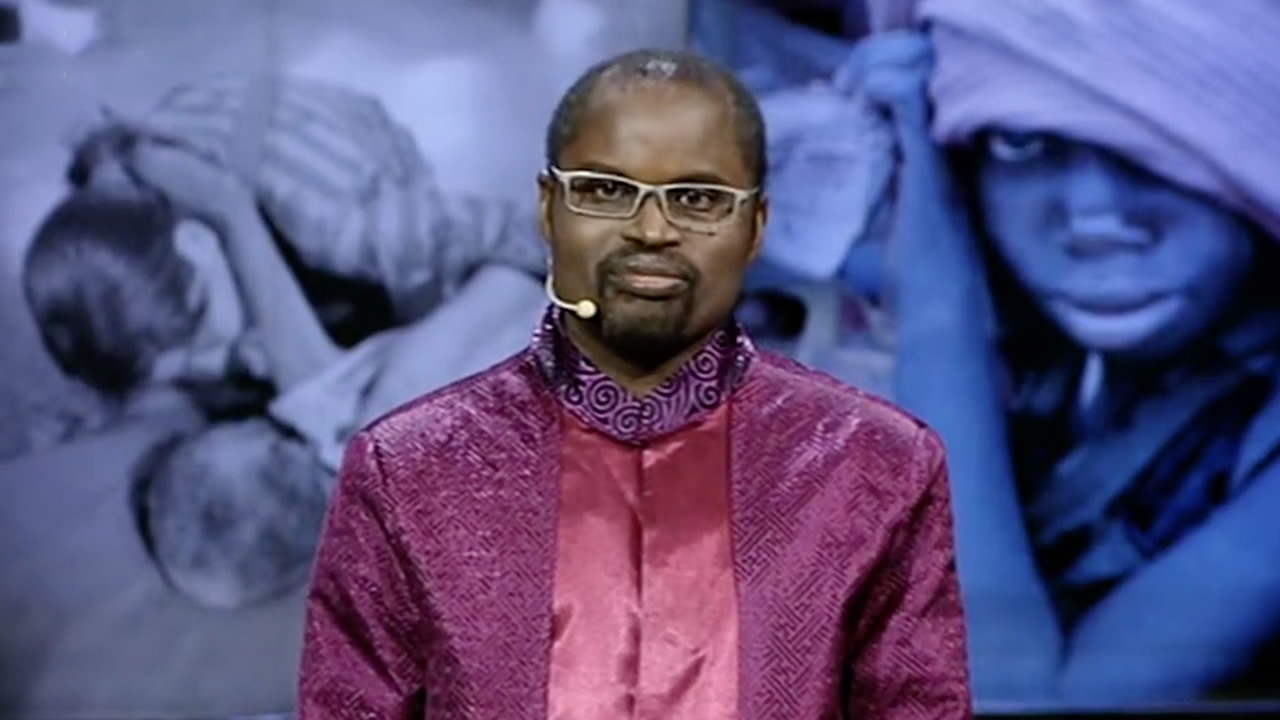
The fourth speaker was Diarra Boubacar, a “barefoot doctor” originally from Mali who practices Traditional Chinese Medicine in China. He has also trained many village doctors all over China. “Poverty is related to health care and medicine. So to alleviate poverty, we need to bring health care to these poor villages in a very simple, sustainable way by using natural resources. Do one thing at a time, and we will make it,” Boubacar appealed.
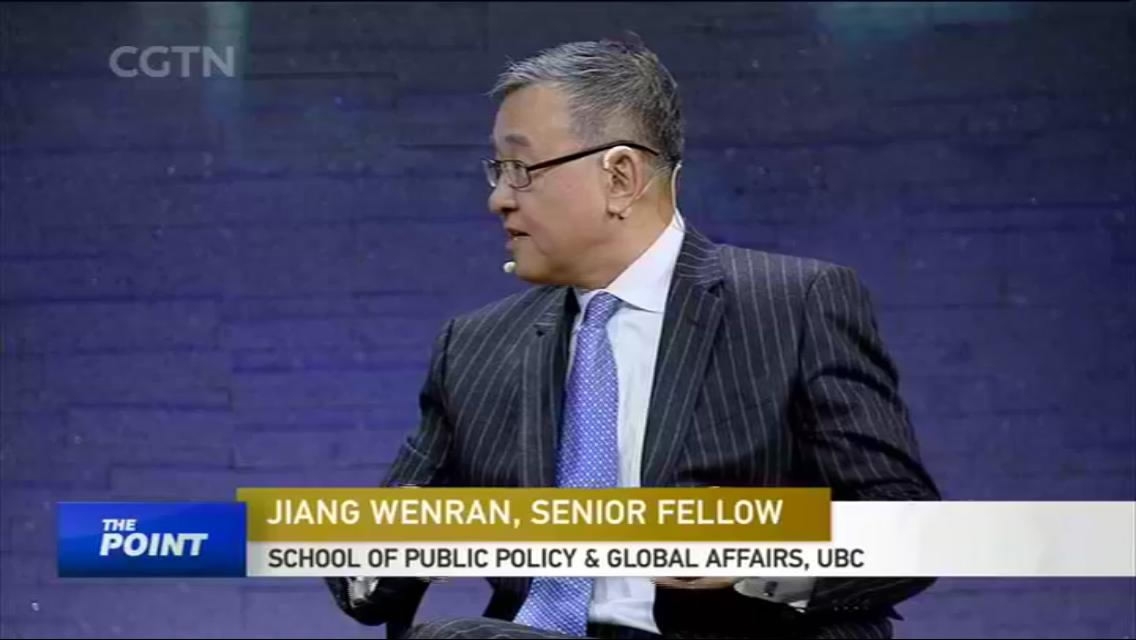
Jiang Wenran , Senior Fellow at the School of Public Policy & Global Affairs at the University of British Columbia. /CGTN Photo
Jiang Wenran , Senior Fellow at the School of Public Policy & Global Affairs at the University of British Columbia. /CGTN Photo
“We are seeing not only China send doctors abroad but also we have barefoot doctors from Africa coming to China,” said Jiang Wenran, Senior Fellow at the School of Public Policy & Global Affairs at the University of British Columbia, “It tells us that reducing poverty really has no national borders. ”
He emphasized that in order to make the barefoot doctor movement work well, “they have to function in a very peaceful environment. In war-torn zones in many parts of Africa, they can’t operate,” he said.
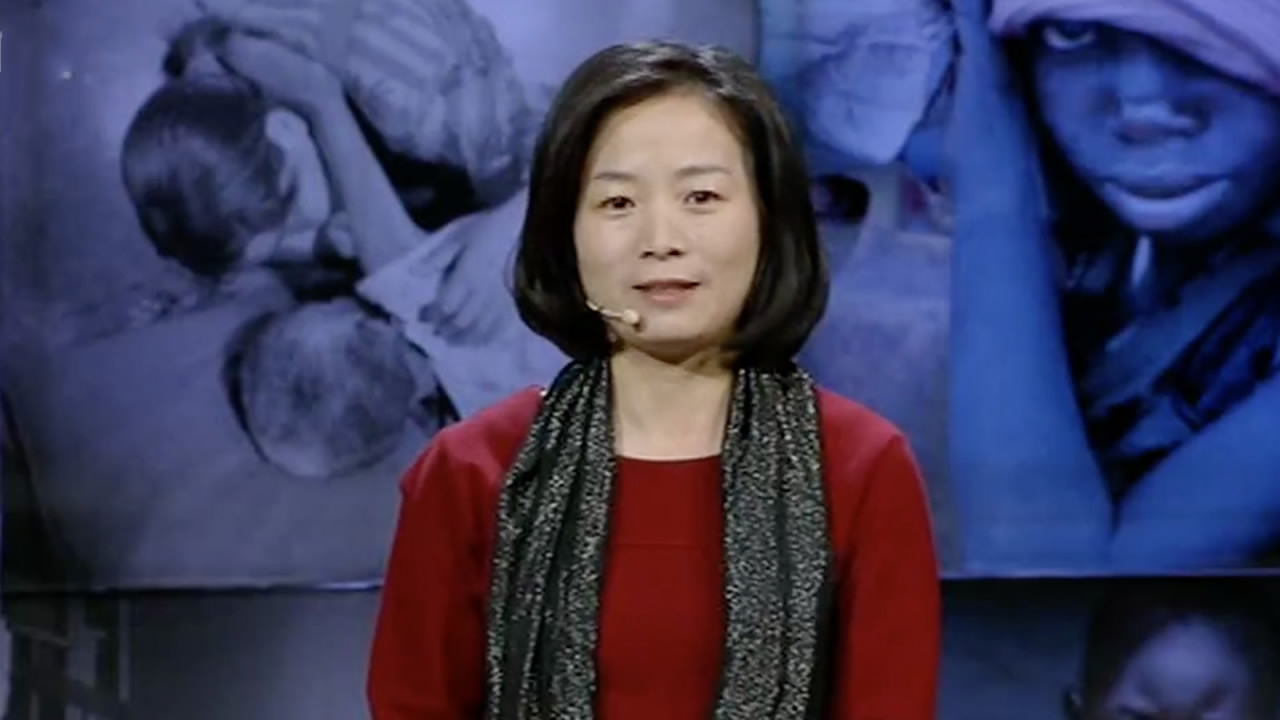
The last speaker was Jessica Jiang, Co-Founder of the Rural Culture Renewal Volunteers Association, which works on poverty alleviation and rural vitalization in China. She told a story about the new image of farmers and the countryside. “Poverty alleviation is not a one-way philanthropy. It’s a two-way mutual learning process. I hope in the future, people can join hands and vitalize the rural area again, and make it the most beautiful, livable, and cultural place to be,” Jiang said.
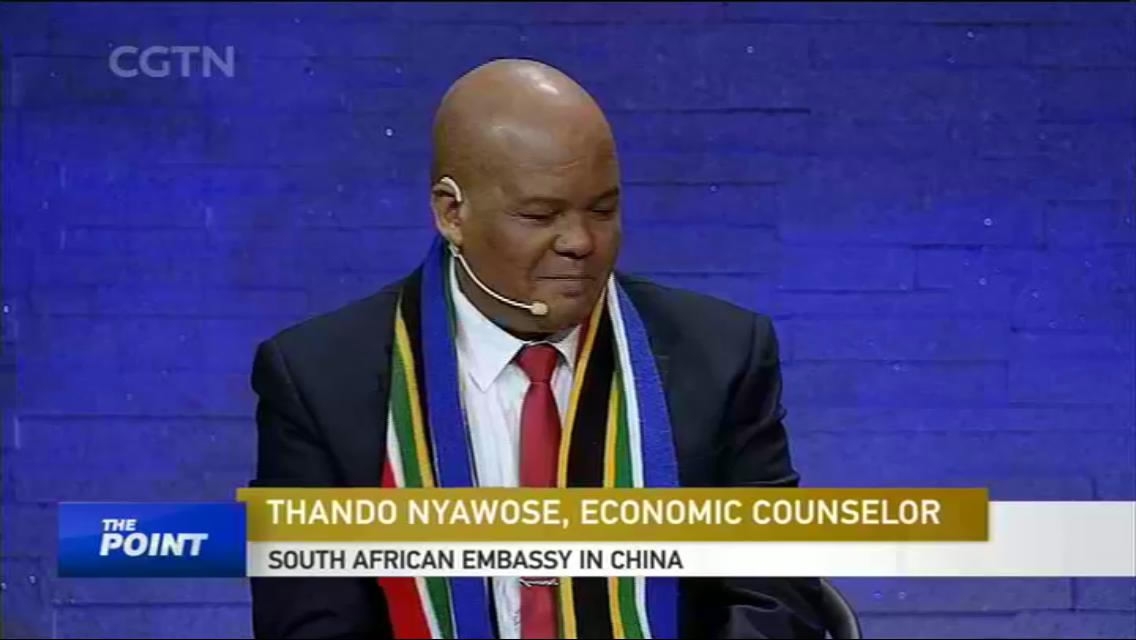
Thando Nyawose, Economic Counselor for the South African Embassy in China. / CGTN Photo
Thando Nyawose, Economic Counselor for the South African Embassy in China. / CGTN Photo
Thando Nyawose pointed out one of the big challenges that is facing agricultural development in South Africa. Only eight million hectares of arable land have been transferred to black people, which is only 9.8% of the 82 million hectares of arable land in South Africa. “Our government has a 30% target [In 1994, SA government set a target of handing 30% of agricultural land to black recipients by 2014], which is very difficult to reach. Because private owners of land sell it to the government at very high prices,” Nyawose explained.
Extreme poverty rates have been cut by more than half since 1990, however, one in five people in developing regions is still stuck in poverty.
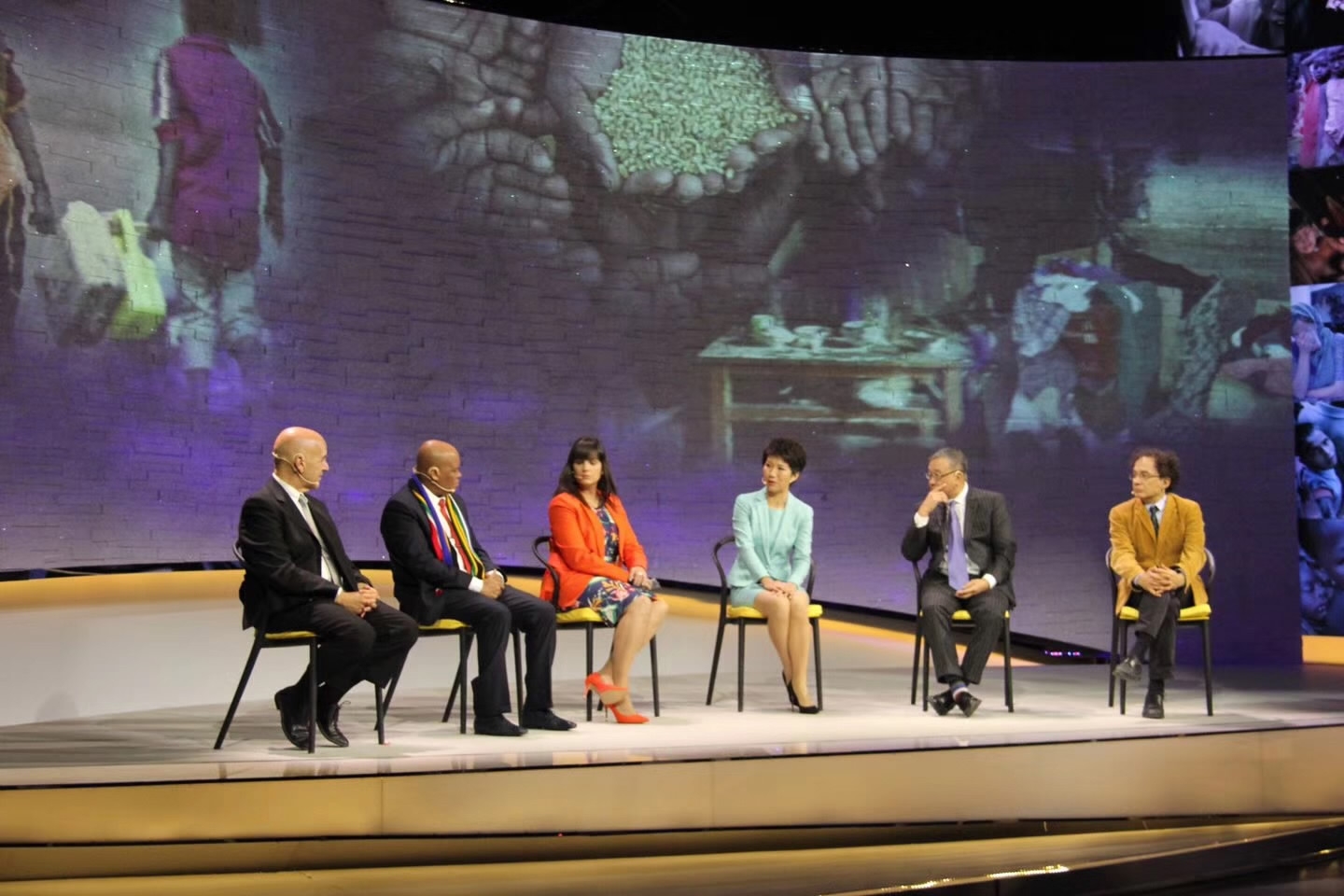
On Poverty, a special program co-produced by China Global Television Network (CGTN) and South African Broadcasting Corporation (SABC). /CGTN Photo
On Poverty, a special program co-produced by China Global Television Network (CGTN) and South African Broadcasting Corporation (SABC). /CGTN Photo
“South Africa is sitting in a very difficult situation. The statistics show that half of our population is living in poverty, and it’s not getting better - it’s getting worse,” said SABC’s Leanne Manas. She said that “the lessons that have been put on the table here are things that we need to use, and we need to put them into play because that could better the lives of people.”
CGTN’s Liu Xin thought China still has a long way to go. “1.90 US dollars a day is not a lot. Even though a lot of people have come out of the poverty line, how to really improve their lives is still a very big task,” she concluded.
As the late former President of South Africa, Nelson Mandela famously said: "As long as poverty, injustice, and gross inequality persist in our world, none of us can truly rest."
The Point with Liu Xin is a 30-minute current affairs program on CGTN. It airs weekdays at 9.30 p.m. BJT (1330GMT), with rebroadcasts at 5.30 a.m. (2130GMT) and 10.30 a.m. (0230GMT)

SITEMAP
Copyright © 2018 CGTN. Beijing ICP prepared NO.16065310-3
Copyright © 2018 CGTN. Beijing ICP prepared NO.16065310-3